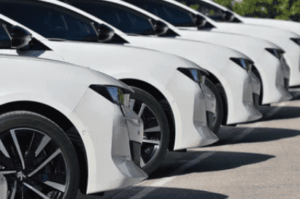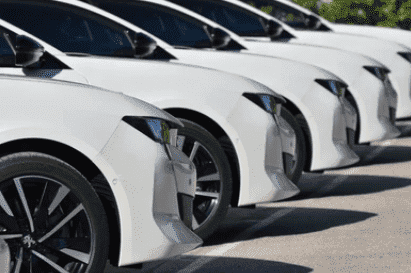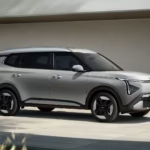Introduction
Electric vehicles are on a growth trajectory in India due to rising concern towards the environment, government initiatives and support, and rising awareness among consumers. As there is a shift towards electric car dealers, the sales of EVs are expected to surge in the forthcoming years.
- Understanding the Electric Vehicle Market in India
- Choosing the Right Electric Vehicle Brand:
- Researching Dealership Requirements:
- Preparing a Business Plan:
- Securing Financing for Your Dealership
- Navigating Legal and Regulatory Requirements:
- Setting Up the Dealership Infrastructure
- Launching and Promoting Your Dealership
- Growing Your Electric Cars Dealership.
- Conclusion
If someone wishes to invest in this promising market, it will be even more profitable to begin an electric vehicle dealership in India in 2024.
To help you understand what you need to consider the following aspects this article will explain to you how to get electric vehicle dealership in India.
Understanding the Electric Vehicle Market in India
It is therefore necessary to understand the Indian market for electric vehicle dealership before proceeding to the process of buying an electric vehicles dealership. The Indian government has given a push to electric vehicle dealership with schemes like FAME II (Faster Adoption and Manufacturing of Hybrid and Electric Vehicles), where manufacturers and consumers enjoy certain concessions.
This has been reinforced by the continuous increments in fuel prices as well as the awareness of the effects of climate change. It is revealed by some industry reports that the EV market in India will have a CAGR above 36% between 2021 and 2026.
Some of the drivers of this growth include perceived government support for electric mobility, gains in battery technology, and new entrants into the market. The market for electric vehicle dealership is set to climb even more by 2024 in India making it a good time to invest in an EV dealership.
Choosing the Right Electric Vehicle Brand:
When you begin to follow these markets, the next issue is choosing the right electric vehicle brand for your dealership. Indian automotive industry’s top players active in the EV sector are Tata Motors, Mahindra Electric, Ather Energy, Ola Electric, etc.
These brands have various EV models including two-wheelers, four-wheelers, automobiles, and commercial vehicles.
Some of the things that should be taken into consideration include the reputation of the brand, the number of choices in the models available, electric vehicle dealership cost, warranty and customer services. A business needs to associate itself with a brand that complements its business objectives and is well-established.

Researching Dealership Requirements:
Once you choose the brand you want to sell, the other step is to check all the relevant details about the dealership partnership. The specific requirements and procedures used by each electric vehicle manufacturer to grant dealership rights differ. These requirements typically include:
- Investment Capacity: The minimum investment which is needed to start an EV dealership may also differ depending on the make and model of electric vehicles to be sold. This investment usually extends to showroom premises, facilities, stock, operating capital, and promotional costs.
- Location: Location is a key factor that determines the success of your dealership. Companies can have particular demands for where the showroom should be situated, how big it should be and its design. Thus, the place should be chosen with consideration given to the areas that are frequently visited by potential clients.
- Experience: Again experience in the automobile industry can be useful but is not necessarily essential. However, education in sales, marketing and or business management can be helpful when it comes to being considered for a dealership.
- Infrastructure: It may be necessary to install certain structures such as a showroom of vehicles, a service section and a charging area. The showroom should be spacious and well laid to naturally and compactly fit several cars, a customer comfort area, and a test-drive section.
- Training and Support: Most brands have taken their time to arrange training sessions for both dealership owners and staff so that they can be conversant with the brands, their products, technology, and customer service delivery. It is crucial for creating a full cycle of customer service and building customer satisfaction.
Preparing a Business Plan:
To become an electric vehicle dealer, you will have to submit a detailed business plan to the preferred brand. This plan should identify your dealership goals, your target market, your strategies to reach customers, expected revenues, and expansion plans.
- Executive Summary: This is a short presentation of your idea, your aims, the goods and services to be offered, and the way to achieve the goals.
- Market Analysis: Market research for the local EV market, covering demand, competitors, and target clients. This will assist you in defining strengths and weaknesses and making necessary adjustments to the business model.
- Marketing and Sales Strategy: Explain how you will acquire and maintain clients through marketing, promotional campaigns, online marketing, and customer relations strategies.
- Financial Plan: Include balance sheet, income statement, cash flow statement and all other expenditures and income which should be anticipated. You should use this section to prove the financial possibility of your dealership.
- Operations Plan: Explain how your dealership functions daily, for instance, employees, products, services, repairs, and customer relations.
A business plan is not only useful in gaining a dealership but also effective for a business to steer it on the path to success.
Securing Financing for Your Dealership
The Electric Vehicle dealership business involves a substantial capital investment which brings out the importance of getting a financier. Depending on your financial situation, you can explore various financing options, including:
- Bank Loans: The most traditional source of financing for a dealership is bank loans. Business loans are usually available at affordable interest rates, provided you qualify for the loan and have a good business plan.
- Government Subsidies and Incentives: The Indian government provides several subsidies and incentives in the EV sector for business. This can help you minimize your initial investment and increase your ROI.
- Private Investors: If you can’t get a bank loan, you may try to find private investors or venture capital firms that are involved in the EV segment. In return for an ownership stake in your firm, the investors can bring in the cash needed to establish your dealership.
- Self-Funding: You can self-finance the dealership in case you have enough money or other valuable resources to channel to the business. This option has the advantage of limiting outside funding, but it implies a relatively large amount of personal exposure.
Navigating Legal and Regulatory Requirements:
There are several legal and regulatory restraints involved when setting up and running an electric vehicle dealership in India. These include:
- Business Registration: First, operate your dealership as a legal entity that could include a sole trader, partnership, or a private limited company. For instance, one will need to obtain a GST registration, PAN card, and other business licenses.
- Dealership Agreement: Secure a dealership deal with the preferred manufacturer which entails the scope of the dealership area, prices, commissions, and other responsibilities.
- Environmental Regulations: Depending on your line of business in EV, you may also have to meet set environmental laws such as on waste disposal and emission. Your dealership must comply with all environmental regulations.
- Employee Contracts: If you are going to employ employees of your dealership, prepare employment contracts that are legal and specific to the wage rates, benefits, and duties of the employees.
- Insurance: Find good insurance policies that will cover your dealership including property insurance, liability insurance and vehicle insurance. This will help your business in avoiding risks and losses that may occur from random events.
Setting Up the Dealership Infrastructure
The final step that comes after approval and funding is laying down the infrastructural framework for the dealership. This includes:
- Showroom: Construct a showroom that is in line with the brand and is conducive for the customers. The showroom also should be illuminated, sea and should contain the necessary facilities for functioning.
- Service Center: Establish a service centre with qualified manpower, necessary tools and repair parts. The service centre should be able to perform regular checkups, repairs and warranty services on the vehicles you intend to market.
- Charging Stations: Since electric vehicle dealers are becoming the trend, you must fix charging points within your dealership. These should be compatible with the vehicles you sell and allow customers to charge their electric cars quickly.
- IT Infrastructure: Adopt a sound IT platform to support sales, stocks, customers, and other financial operations. It will also reduce your organisational complexity and improve the quality of customer service.
Launching and Promoting Your Dealership
Finally, when the preparations are made, it is time to open the electric vehicle dealership and attract clients. Here are some tips for a successful launch:
- Grand Opening Event: Organize a launch event, where you will officially present your dealership to the public of your city and state. Advertise test drives, special offers, and other bonuses to create demand and target potential buyers.
- Digital Marketing: Use online media to reach potential customers via social networks, SEO, and email newsletters. Establish an easy-to-navigate website of the dealership to display products you sell, services you offer and your contacts.
- Local Advertising: Promote your dealership in local newspapers and magazines as well as through billboards and radio to get more traffic.
- Partnerships: Establish partnerships with local car rentals, ride-sharing services, and fleet managers to market your electric vehicle dealership and customers.
- Customer Engagement: For instance, the centre of attention is on the provision of prompt after-sales service, loyalty incentives, and individualized communication.
Growing Your Electric Cars Dealership.
But after creating your dealership, the next step to take is to start the actual expansion of the business. Here are some strategies to consider:
- Diversifying Product Range: Develop additional SKUs that include new electric car models, products accessories and services. This will diversify your customers and expand your revenue centres.
- Expanding Geographically: If the first dealership is good, it may be possible to open other dealerships in other cities or other sub-regions. This will enable you to expand into new markets and expand the growth of your business.
- Enhancing Customer Experience: Delight the customer by offering added services like home delivery, possessing vehicles, and constantly upgrading the equipment through staff training.
Conclusion
The market of electric vehicle dealership is expanding rapidly and along with it the trade of such vehicles is gaining immense popularity. If one is interested in capitalizing on this growing market, then there is a need to build some form of readiness. For more insights on starting your electric scooter dealership in India, check out the detailed guide on Electric Scooter Dealership.
In this blog, we have discussed things that you should consider, including market research, investment plans, dealerships, and showrooms. Just always bear in mind that every piece of work involves effort and time. Explore our latest information on electric vehicle dealership and sustainable transportation on EV Hexa.
If you want to invest and work, then electric vehicle dealership can be a good business for you if planned properly.




